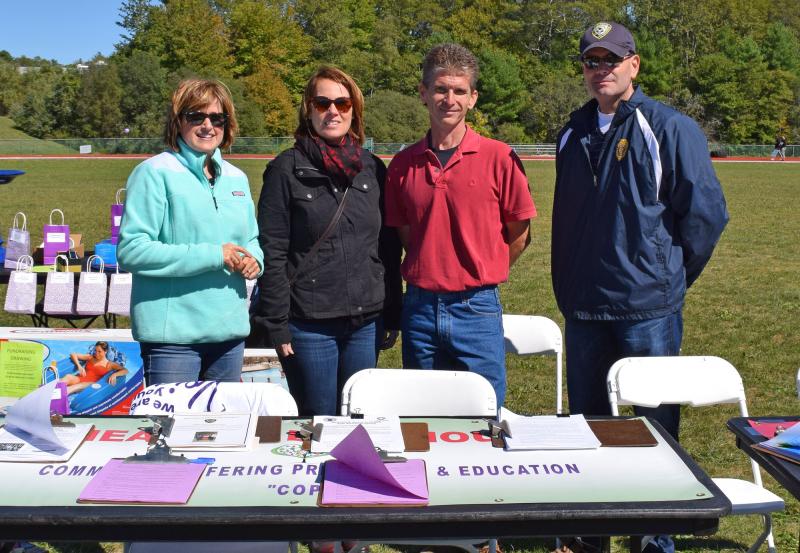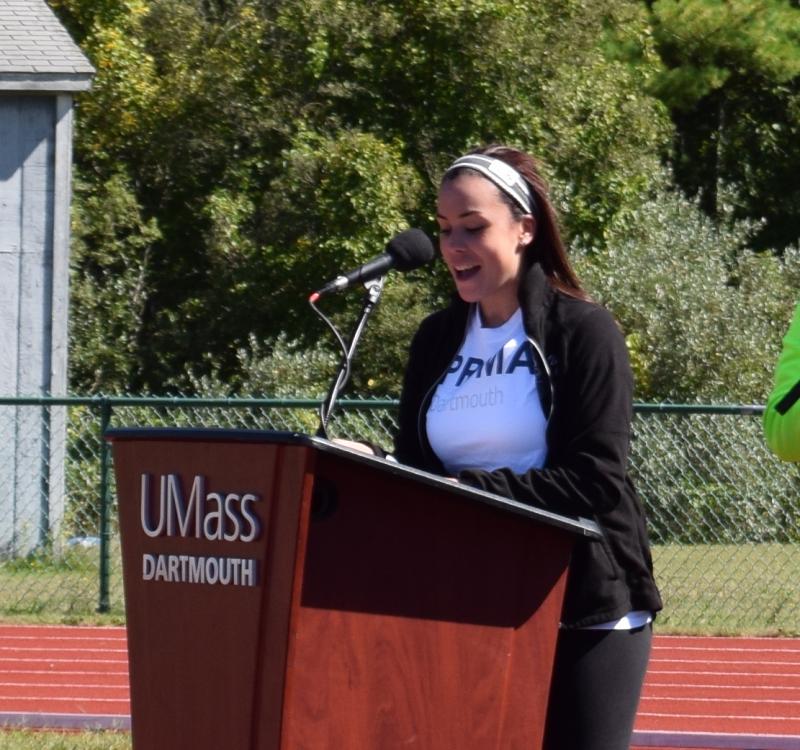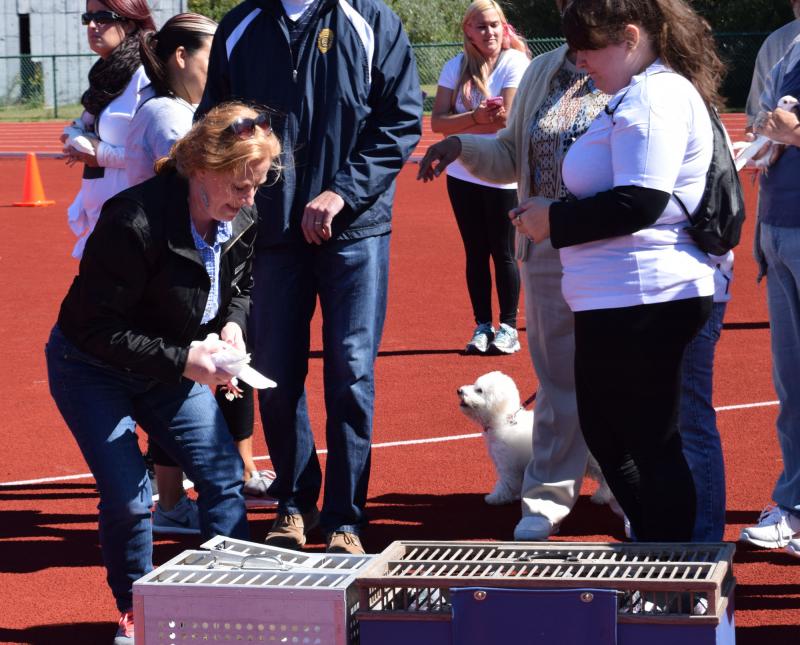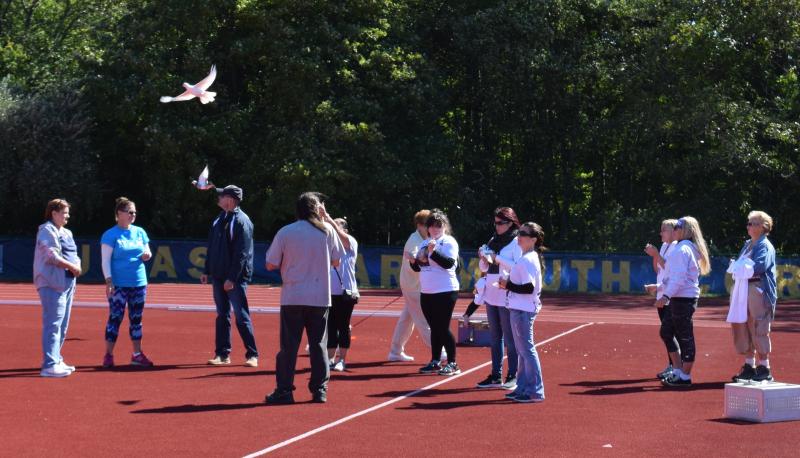Community walks three miles for addiction awareness
Catherine Connearney watched as doves circled above approximately 50 people before flying away. The crowd had gathered for an addiction awareness walk at the University of Massachusetts Dartmouth on September 25, and the birds were released to kick off the event.
Connearney knows the struggle addiction puts on both individuals and families. She has been in recovery for 29 years, and most recently helped her son and daughter into rehab in 2015. She said her daughter was easier to help; her son tried to hide his addiction.
“He is a musician, but he sold his guitar,” Connearney said, recalling the moment she realized her son was on the same path she walked nearly three decades earlier. “I went into his room and confronted him, and he said he didn’t want to play his guitar anymore.”
The truth eventually unfolded, and Connearney said both siblings have been clean for about a year.
The Steps Towards Recovery walk — which included 12 laps around the UMass track to symbolize the 12 steps to recovery — was organized through a collaborative effort between UMass nursing student Callie Nunez and a campus chapter of Young People in Recovery, the Dartmouth Police Department, Youth Advocate, the Community Offering Prevention & Education (COPE) program (which targets an adult audience to help combat the opioid epidemic), and other organizations.
For Nunez, the organization and the three-hour recovery walk served to unite the community, and provide resources for those struggling with addiction.
“We didn’t have a resource on campus like this,” Nunez said. “I had a student reach out to me just last week for help. It’s really making a difference.”
Shirley Black, a member of both Nurses to Prevent Opioid Abuse and Recover Fall River, helped organize the event alongside Nunez. She said the event is especially important to raise awareness among the next generation of nurses, as well as provide closure to those who have lost loved ones.
“It's a huge thing for people who have lost someone to addiction,” Black said. “People who have lost someone can’t talk about it. When we have events like this, it’s important to recognize those we have lost."
Board of Health Director Chris Michaud also helped plan the event, but lauded students. “It’s huge to see students take the initiative,” Michaud said. “[UMass Dartmouth] is like a small town with its own population within Ring Road,” he said, pressing the importance of the campus chapter of Young People in Recovery.
“Addiction does not discriminate. It hits everyone,” added Detective Kyle Costa.
Various support organizations were present to spread awareness about their services. Dave Gonsalves and his son Cory Palazzi had a table to promote Cory’s Cause. Gonsalves said he began Cory’s Cause after Palazzi overdosed on heroin. Palazzi now lectures to help raise awareness of addiction.
“When I woke up in the hospital, I kept asking myself ‘Why did I live?’” Palazzi said. “After I gave [a presentation] for the first time, I realized why I lived… to help other people going through what I went through.”
Palazzi suffered a shoulder injury as a varsity baseball and football player in his junior year at Taunton High School. He became addicted to the prescription painkillers after his surgery, and soon moved on to heroin. In August 2013, Palazzi overdosed, which caused a brain injury.

















